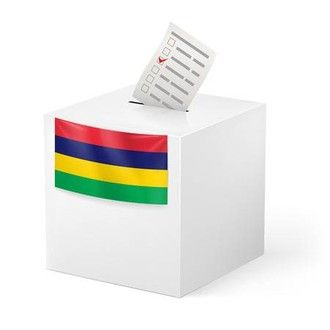
Elections were recently of relevance in Mauritius. Indeed, they were held on the 7th of November last, following which the former Prime Minister, Pravind Jugnauth, won the title again. Let’s talk about elections in Mauritius; what are some facts to be aware of? What does history tell us about them? How do they generally take place?
Some facts
General elections are organised every five years in Mauritius. Whereas for village and municipal elections, they are organised every six years.
Coalitions or “allians” – as they are commonly called by residents – are a common practice in Mauritius. Some key parties the name of which you will often read in the newspapers (not in any particular order): the Parti Travailliste (PTr), the Mouvement Militant Mauricien (MMM), the Mouvement Socialiste Militant (MSM), the Parti Mauricien Social Démocrate (PMSD), Lalit, Rezistans ek Alternativ, Organisation du Peuple Rodriguais (OPR).
This year’s elections have seen the participation of some new parties. Some independent candidates participated as well. However, Mauritians rather support traditional parties which have been on the political scene for a long time.
Some key moments in history
The British settled in Mauritius from 1810 to 1968. The first supporters of the democratisation of the Mauritian electoral system were Sir William Newton and Sir John Pope Hennessy. However, things did not change until 1947.
Indeed, the electoral system undergoes a reform under the rule of the governor Donald Mackenzie-Kennedy, which allows women, as well as inhabitants of Mauritius who are literate to vote. The number of voters at that time (around 11,844), increases by six times. The elections of 1948 have been a big, historical progress in terms of political freedom.
In 1967, six months prior to independence being granted to Mauritius, are held the first elections to which parties composed of Mauritians participate. It is during these that the firs Prime Minister of Mauritius, Sir Seewoosagur Ramgoolam, was elected.
The electoral vibe
The “meetings” (gatherings/speeches), during which politicians talk to the general public, form part of the Mauritian political folklore. It is a matter of great passion for a lot of supporters. Therefore, they open display their support during these gatherings. A large number of them sport the colour(s) of “their’ parties with much pride. T-shirt, shirts, sari, scarves; some even tie banners to their vehicles.
The electoral campaign is also carried out on the channels of the national television – every party is allocated some minutes so as to try and convince voters –, through posters and banners, but mostly through canvassing, during which the candidate or his/her representatives visit residents of the area.
In addition to these traditional promotion tools, politicians have modernised their respective campaigns this year. Indeed, they have stepped onto social media and the Youtube platform, in the form of adverts within videos.
There are also parades throughout the island. Men, women and children wave flags sporting the colours of political parties. Many of them were blowing into vuvuzelas (probably taken out after the recent Jeux des Iles de l’Océan Indien (Indian Ocean Island Games) that were held in Mauritius in July last) on Thursday 6th of November last, one day before the elections, trying to attract the gaze of voters.
You might have understood by now that elections take place with a great fanfare in Mauritius.
